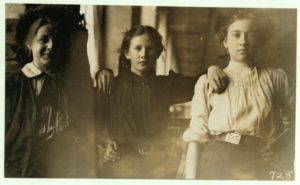Between 1830 and 1930, close to one million immigrants from Québec poured into Vermont and New England, populating towns and villages, starting new businesses and farms. While many of these new immigrants settled closer to the border, others spread throughout Vermont and into New England. The influence of these settlers on the state and region was vast, from politics to culture, to the economy. In many northern schools in Vermont, French was as frequently spoken as English. Today, while the phone book remains heavily dominated by French surnames, the many descendants of these immigrants are largely integrated. Yet some 25 percent of Vermonters trace their ancestry to French Canada.
This conference, held March 20, 2017, at the University of Vermont, looked at the past, present, and future of these cross-border migrations and relationships. In three panels we ask fundamental questions:
•Past: How and why was Vermont and New England populated by so many French Canadians in the nineteenth and early twentieth centuries? When, how and why did this they assimilate?
•Present: How do cross-border connections with Quebec, in tourism and in trade, continue to shape the culture and economy of northern New England?
•Future: How does the French Canadian wave of immigration relate to current immigration trends? What can we learn from the past as we think about the future?
PRESENTERS
•Mark P. Richard, Professor of History and Canadian Studies, SUNY Plattsburgh
•Christine St-Pierre, Minister of International Relations and la Francophonie, Government of Québec
•Leslie Choquette, Director of the French Institute at Assumption College
•David Massell, Professor of History and Director, Center for Canadian Studies, University of Vermont
•Susan Pinette, Director of the Franco-American Centre, University of Maine
•Ernest Pomerleau, French Honorary Consul in Burlington, Pomerleau Real Estate
•Carole Salmon, Chair of World Languages and Cultures, University of Massachusetts, Lowell
•Chris Louras, Mayor, City of Rutland, Vermont
•Mary Rice-DeFosse, Professor of French & Francophone Studies, Bates College
A partnership between University of Vermont and, among others, the AFLCR.
Cover image: French Canadian potato farmers near Caribou, Maine, October 1940. Source: Library of Congress
